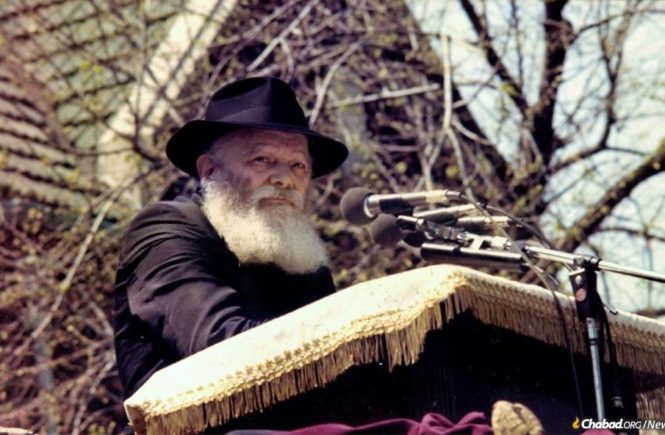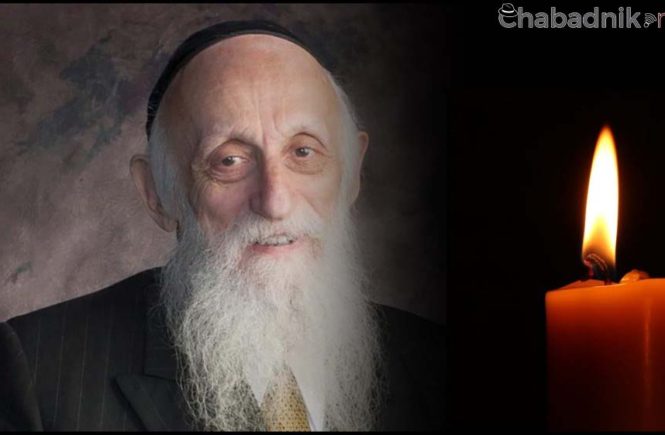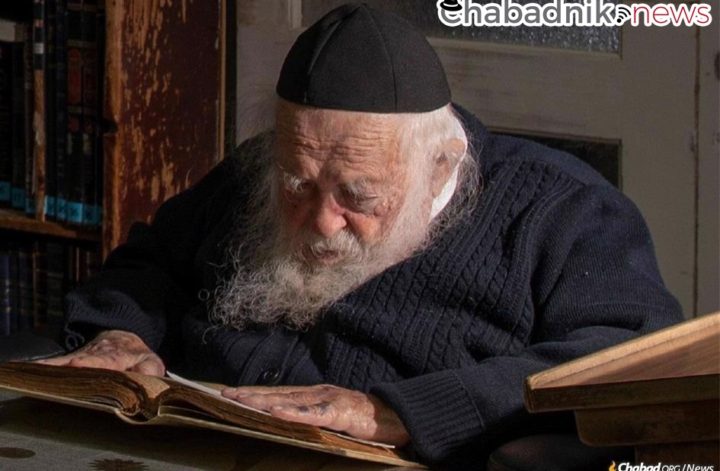The 1980 Russian-language address that took the world by surprise and placed the Soviet regime on notice
The year 1980 was turning out to be a dark one for Soviet Jewry. The previous decade had seen the first large-scale Jewish emigration from the Soviet Union, reaching a peak of 51,300 exit visas in 1979. But then things suddenly changed.
“An abrupt tightening of Soviet emigration procedures has resulted in a decline in the number of Jews leaving for the West … ,” The New York Times reported that summer, noting that Soviet visa officials had suddenly added a slew of new bureaucratic requirements. By the end of 1980, Jewish emigration from the USSR had fallen by 58 percent, continuing drastically the next year and the next. “Given these statistics, the report from Embassy Moscow that Soviet emigration officials have been telling prospective applicants that ‘Jewish emigration from the Soviet Union has come to an end’ is a description of an accomplished fact,” reads a confidential Reagan-era National Security Council memo declassified in 2019. “The monthly levels will probably not drop to zero [so that] Soviet authorities can maintain a trickle of emigration as evidence that those who are truly deserving can still leave.”
Not only had it become nearly impossible for Jews to leave the Soviet Union, it became even more difficult to live there as one too. For Yuri Andropov, the powerful head of the KGB, what he saw as “ideological subversion” was a matter of top importance. With the crackdown that began in 1980, swaths of Soviet Jewish (and non-Jewish) dissidents were swept away, threatened with arrest or arrested, imprisoned or exiled. Concerning Jews, this mostly did not connote democracy activists, but rather, Hebrew tutors, Torah teachers and Jewish communal figures.
“The enemy is stepping up its attempts to fuel emigration sentiment among the Jewish … population,” Andropov explained in a speech before the KGB in 1981, accessible via the Wilson Center digital archive. “Additionally, they are trying to use not only nationalistic sentiments, but also religious grounds, encouraging believers of different nationalities to leave the USSR.” Noting the good work of various KGB branches throughout the Soviet Union thus far, Andropov insisted there was more to do: “We have to step up counter-intelligence efforts against the emissaries of subversive centers and against other ideological infiltrators. We have to strive to detect their hostile activities not in Moscow or Kiev, but over there, across the border. The KGB agency has to use the immigrant community in various countries to create favorable positions for themselves.”
In other words, far from being the feverish nightmares of anti-Communist hawks, the KGB was actually everywhere and even more committed to its evil work. And for the Jews stuck behind the Iron Curtain, there was no end in sight.
Then, on May 4, 1980, some 4,600 miles away from Moscow, a crack appeared. Speaking at a Lag BaOmer parade for children on Eastern Parkway in the Crown Heights neighborhood of Brooklyn, N.Y., the Rebbe, Rabbi Menachem M. Schneerson, of righteous memory—deviating from his regular use of Yiddish and switching to Russian—would not only surprise the hundreds of thousands of people listening either in person or over a live feed, among them recently arrived Soviet Jews, but send an unprecedented message of hope to the Jews in the Eastern bloc and place the Kremlin on notice.
The Rebbe did not plead but appealed. In no uncertain terms, he told Soviet authorities directly that it was time that they follow the laws enshrined in their own constitution—namely, that no official, whether lowly policeman or highly placed bureaucrat, dare stop a Jewish boy or girl from learning about Judaism or studying Torah and mitzvot with their parents or grandparents. He likewise foresaw the dawn of liberty for those behind the Iron Curtain, and a time, very soon, when its Jews would enjoy the true freedom granted to them by G‑d Almighty.
“I was more than shocked; I couldn’t believe my ears,” recalls Rabbi Shlomo Galperin, a Russian-born Chabad Chassid who had himself been granted a Soviet exit visa barely a decade earlier. By then a school teacher at Friends of Refugees of Eastern Europe’s (FREE) Jewish day school for recent immigrants in Brooklyn, he was attending the parade together with his class of lively youngsters. “I told them, please! listen! The Rebbe’s speaking directly to Moscow!”
A Historic Occasion
That Sunday morning of Lag BaOmer was a slightly cloudy but pleasantly warm Spring day in New York—perfect for a parade. Folding chairs, grandstands and police barricades crisscrossed Eastern Parkway, the wide Brooklyn boulevard being blocked off for the event. The excited sounds of school children, their balloons and flags waving in the wind, mixed with the straining voices of their teachers, each worried to lose sight of any of their charges in the crowd of 20,000.
The work of preparing the festivities, building colorful and meaningful floats, painting signs, decorating the entire facade of the four-story Chabad-Lubavitch world headquarter building at 770 Eastern Parkway, had gone on through the previous night and straight into the morning. The smell of fresh sawdust still filled the air. Beyond all the excitement, the highlight of the day for all those who had worked day and night to make it happen, and for the thousands of men, women and children who had walked, trained or bused in for the occasion, would undoubtedly be the presence of the Rebbe, who would address the assembled.
The pageantry and size of these grand children’s parades, held only when Lag BaOmer fell out on a Sunday, had grown exponentially since the Rebbe had initiated them nearly three decades earlier. New for 1980, for the first time, thousands and thousands of Russian-speaking Jewish immigrants were in attendance. In fact, the Russian subcommittee of parade organizers had even worked out a deal with New York’s MTA to have a special direct train take attendees coming from the heavily Russian Jewish Brighton Beach neighborhood to Crown Heights. More than 90 bus stops had been arranged to pick people up from throughout the greater New York area, while hundreds more came from throughout the Northeast.
“My dear friends, I want to warmly welcome all of you, men and women, boys and girls who have come from near and far to participate in this historic Lag BaOmer parade,” exclaimed the ebullient master of ceremonies, NCFJE’s Rabbi J.J. Hecht, in his old-timey radio voice. “I would like you to know that more than 400 such parades are taking place today in Jewish communities throughout the United States of America and on every continent around the world. Many of these parades are tuned into the proceedings here by way of special communications hookup so that we are really part of a worldwide Lag BaOmer celebration. Hundreds of thousands of Jewish children and their parents and spectators are now united with us, joined together to celebrate Lag BaOmer. Surely then, this is an unprecedented historic occasion.”
The gathered had no idea how true that was.

Grand Lag BaOmer parades were initiated by the Rebbe in the early 1950s, a way to engage children in a massive display of Jewish unity. Women and girls can be seen here at the 1980 parade, the largest one up to that time.
‘This, Only a Rebbe Can Do’
At 11:20 a.m., the Rebbe came out of his office and ascended the festooned podium as the Holocaust-era song of hope, “Ani Maamin,” played from the bandstand. First came the 12 Torah verses, recited by Jewish children from day schools throughout North America, each one of whom the Rebbe roundly applauded. Then the Rebbe began a series of short Yiddish talks, each one translated into English by Hecht.
Like Galperin, Rabbi Moshe Chaim Levin worked on the Russian subcommittee and had been up for days on end in preparation for the event. While the Lag BaOmer parade was primarily meant for children, an exception had been made for the Russian Jews, whose parents and grandparents had been invited and encouraged to attend. “We worked specially to bring a lot of Russian Jews to the parade because it would be the first time they would be able to see such a big demonstration of Yiddishkeit [Judaism] out in the open,” he recalls.
Levin and his family, like Galperin, were also Lubavitcher Chassidim who had finally won permission to leave the Soviet Union in 1971. The Levins left Riga not long after their father was released from the Soviet prison where he had been locked up for 10 years. As the parade commenced, Levin was standing not far from the Rebbe’s podium when someone suddenly came running towards him.
“He said, ‘the Rebbe is calling you,’ ” says Levin, today director of Chabad of Kensington, in Brooklyn. “I had no idea what this could be about, and I ran towards the Rebbe’s [podium.]”
By the time Levin got there, the Rebbe had just begun speaking in Russian—a language he had used in a public address only once before. With the understanding that the Rebbe wanted Levin to translate the talk, Hecht handed Levin his pen and the blank side of the papers he had been using to jot down his own translation notes, and Levin began writing.
On the video of the talk one can clearly make out a young Levin to the Rebbe’s left taking notes, with Hecht and the other non-Russian speakers on the dais unsure of what was going on. One of the few in the immediate vicinity who did understand the language was the Rebbe’s brother-in-law, Rabbi Shmaryahu Gurary, whom the video shows rocking in place. On his face is the knowing smile of someone who recognizes that something extraordinary is unfolding.
Levin, of course, also understood the words. “The only way I can put it is that my knees were trembling from awe,” he recalls.
Galperin, standing with his class of boys, had also been sought to assist with Russian translation before the Rebbe began his talk, but it took longer for him to be found at his spot on the far side of the wide boulevard. Peering out over the sea of heads between him and the grandstand, and then down at the young students he was responsible for, Galperin knew there was no way he could go. Then, the Rebbe began to speak. Today, what stands out most about the talk itself is the sheer power of it.
“This, only a Rebbe can do,” he considers. “The Rebbe speaks to them [the Soviets] in their language and tells them what to do.”

The parades, complete with placards, elaborate floats and marching bands, were full of pageantry and color.
Inherited Strength
The Rebbe, born in the city of Nikolayev in the Russian Empire (today, Ukraine), had grown up there and in Yekaterinoslav, after 1926 Dnepropetrovsk, where his father served as chief rabbi, leaving the Soviet Union for the last time in the fall of 1927. Although language evolves over time, with wording, sentence structure, intonation and the like changing as years go by, the Rebbe’s Russian language remained clear, unaccented and sophisticated.
At first, he spoke directly to the thousands of Russian-speaking Jews at the gathering and listening via hookup.
“The gathering here … has a special lesson for all those here today who have come from the USSR—Russia or similar countries,” he said. “Jews who have seen, or see even now, how G‑d protects them, regardless of the fact that they grew up in a regime which for over 60 years has not allowed Jewish education in a widespread manner. They have still come here with their children, or to a parade connected with Lag BaOmer and R. Shimon bar Yochai in other countries. This shows the power of Yiddishkeit and the power of the Jewish people. No matter which Golus [exile] they are in or which regime they are under, if they decide with firm resolve to ‘keep the way of G‑d’—to follow G‑d’s path as shown by the holy Torah, through fulfilling His directives—His holy mitzvot, they will eventually overcome all difficulties … .”
Lag BaOmer is the anniversary of passing of R. Shimon bar Yochai, the author of the Zohar, and the Rebbe explained that the great sage’s self-sacrifice to protect the Jewish faith in the face of the Roman Empire had in his merit been endowed to the Jews of all future generations. The Jews who had survived the horrors of the Soviet Union, a torment their brethren in the West had never encountered, thus had a particular mission to “proclaim among all the Jews, with Jewish strength and Jewish feelings, that a Jew can live a Jewish life regardless of all the pressures and difficulties. G‑d provides for them, and protects them and their children. This is accomplished by being a living example, here on this side on the Iron Curtain, not only of how they live according to the directives of Torah, but also that they have added to their observance of Torah in order to positively affect the environment around them … .”
It was also incumbent upon them all to encourage their relatives on the other side not to give up hope. R. Shimon bar Yochai had taught that “in every place where the Jews were exiles, the Shechinah [Divine presence] went with them,” and therefore wherever in the vast Soviet empire a Jew found themselves, whether in relative freedom or even in government-imposed deportation, G‑d Almighty was “found together with every one of them, protecting them and giving them the strength to overcome all difficulties.”
As Andropov would plainly say in his speech to the KGB, the Soviet Union’s secret police was everywhere, both inside Russia and out. In The Sword and the Shield, Christopher Andrew’s history of the KGB written based primarily on the secret archive smuggled out of Russia by defector Vasili Mitrokhin, he notes that as of the mid-1970s, 15 percent of Soviet employees in New York were fully recruited Soviet intelligence agents, with an additional 3 percent co-opted by the security organ. Clearly, especially in light of Andropov’s offensive, the KGB was on Eastern Parkway listening. And the Rebbe did not mince words.
“There is another point in this lesson,” the Rebbe continued, his voice emanating loudly from the speakers. “We must tell all the children who are there that according to the law of the USSR as guaranteed by the Soviet constitution, a son or daughter, a Jewish boy or girl can come to his parents and ask them to teach him or her about Yiddishkeit and about Torah and mitzvot … .
“Anyone who tries to prevent this … is acting against the Soviet constitution and against Soviet law. According to Soviet law such a person must be arrested, judged and punished as befits someone who breaks Soviet law,” he demanded. “And in the future, the official must protect and guarantee that the Jewish father or grandfather, mother or grandmother, can teach their sons and daughters what the Torah says to do without disturbance, and not prevent them from showing them a living example of how to fulfill mitzvot … . Anyone who prevents the teaching of Torah is merely taking advantage of the fact that there are those who do not know the Soviet constitution.”
Noting not-too subtly that he hoped the address was being heard in the Soviet Union, the Rebbe once again underlined that anyone who was against allowing children to study Torah with their parents was, in fact, a criminal who must be removed from their position and replaced by someone who would properly uphold Soviet law.
The time was near, the Rebbe declared, when “there will be a true liberation of all the nations of the world on a foundation of eternal peace and shalom, when everyone will have true freedom in their everyday lives … and the Jewish people will enjoy a freedom that befits the thousands-year old Jewish tradition, a true freedom that is fitting according to the Torah which was given by G‑d, who controls the entire world … .”

A written transcript of the talk was handed in to the Rebbe the morning after the parade, which the Rebbe would edit in Russian. The Rebbe would end up delivering 10 talks in Russian in the coming years, editing each one of them.
‘It Made a Deep Impression’
The talk lasted a little more than 17 minutes, and those who understood it recognized immediately that something other-worldly had occurred. For his part, using his notes, Levin translated the talk’s content to the team of scholars responsible for translating the Rebbe’s spoken words into written form, and the Rebbe’s secretariat. Immediately after the parade, Levin, together with Galperin and a few others, began preparing a formal written transcript of the talk. The young men worked on it for the rest of the day and through the night, in the morning submitting it to Rabbi Chaim Mordechai Aizik Hodakov, the Rebbe’s chief of staff, who brought it to the Rebbe.
The Rebbe edited the talk once, returning it, and then made a second round of edits before finally approving it. This talk turned out to be the first of 10 Russian-language talks the Rebbe would deliver over the next four years, all of which he would edit in Russian afterwards.
In the coming days, the Lag BaOmer talk would be printed in a wide range of Russian-Jewish emigre newspapers, Novi Amerikanetz and Novoye Russkoye Slovo among them. Levin and his young Russian-born colleagues also transferred the recording onto cassette tapes, the beginning and end of which were purposely left blank, with the talk in the middle. The cassettes were then plastic wrapped and made to look like new, unopened cassettes, and sent surreptitiously into the Soviet Union. Published transcripts, either originating in the United States or printed in the USSR as samizdat [literally: self-publishing, by definition illegal there] in the USSR, also made its way through the country.
Rabbi Uri Kamishov was then a young man living in the Moscow area. Although towards the end of the decade Jews in the Soviet Union would have the ability to listen to some of the Rebbe’s talks via a live feed that came through a third country, like France, at the time no such thing existed. Within a few days, however, he had heard the recording, which today he assumes was brought into the USSR by one of the many emissaries sent into the Soviet Union primarily by Chabad’s Lishkas Ezras Achim.
“It made a deep impression on me at the time,” recalls Kamishov, who had never before then heard the Rebbe speak in Russian. “It gave us this uplift—the Rebbe is thinking about us, he pays attention to us.”
At the time, many Russian Jews did not quite understand what the Rebbe meant by demanding the Soviets uphold their laws. What laws? Since when did this criminal regime share any conception of justice? Thinking back, Kamishov did not share that point of view. “The Rebbe said we have the right to study Torah and teach our children Torah; we understood that that meant we have those rights.”

The Rebbe came out to the 1980 Lag BaOmer parade at 11:20 a.m., applauding the children as they recited the 12 Torah verses, delivering his talks and watching the floats pass by, remaining at the parade for around two hours.
‘Something Totally From Above’
On the one hand, the Rebbe’s resounding talk that Lag BaOmer Sunday was something never before heard. Deeply involved in the life and survival of Soviet Jewry from the first day of his leadership in 1950, and even before then, the Rebbe maintained a well-developed network of aid behind the Iron Curtain, but this was all kept highly secret. Even while working with untold numbers of rabbis and Jewish leaders in the United States, Europe and Israel—including maintaining close working ties with Israel’s Nativ—few who dealt with the Rebbe on the subject knew who else did.
“If five people know something,” the Rebbe told Peter Kalms, a founder of Shamir, a Chabad organization for Russian emigre scientists and academics, during a 1975 private audience, “it must be assumed it is also known in the Kremlin.” Similarly, Levin recalls in the mid-1980s reporting to the Rebbe in writing on activities within the Soviet Union that he was involved with, and one of the Rebbe’s secretaries contacting him in the Rebbe’s name to make sure he destroyed any drafts he had written. (Kalms and others have similar recollections.) And yet in this case something altogether different was going on.
“To me, this was obviously something totally from above,” says Galperin. “Lag BaOmer, R. Shimon bar Yochai, the Rebbe was seeing something we did not.”
The Rebbe had long been a prominent and vocal opponent of the Western Soviet Jewry movement’s loud and often bombastic protests in support of Jewish emigration from the Soviet Union. Basing his position on his deep knowledge of the Soviet Union and the Russian mind, as well as on his contacts within the USSR, he had argued time and again that only quiet diplomacy would have the desired effect on the Russians, who bristled at being commanded to release their Jews in loud confrontations. The goal, the Rebbe would stress in public and even more often in private, was to help the Jews in the Soviet Union both materially and spiritually, not make a political point and G‑d forbid place Jews in Russia directly in harm’s way.
This realist point of view was shared by many of the leading scholars of international relations, including the late Hans J. Morgenthau. “History has shown that the Soviet Union may yield under certain conditions to private pressure … ,” he writes in Politics Among Nations. “But it is inconceivable on general grounds that such pressure should be effective when exerted publicly. More particularly, in view of the nature of the Soviet Union’s government—which uses every sign of external pressure to justify repression at home—American agitation for human rights has no chance of being effective.”
Of course, in his public talk the Rebbe had not demanded that the Russians accept the West’s conception of human rights, but that they uphold their own to the letter of the law. As for his message to the Jews behind the Iron Curtain, that remained very much the same: It is within your rights and your ability to study Torah and fulfill its commandments. The grand political gesture might be thrilling, but it would only last a moment. The everyday toil of Jewish life, however, would impact those around them and the generations to come.
“Jewish people must survive even Bolshevism!” Kalms records the Rebbe telling him in 1977. “It is not enough to dance one day a year at Simchat Torah, but he must do something every day. Modeh Ani, not higher philosophy!”
This would be the ultimate victory for the Jewish people.
“The KGB helped to make the notion of serious political change appear an impossible dream,” writes Andrew. “It simply did not occur to the vast majority of the Russian people that there was any alternative to the Soviet system.”
A little more than a decade later, the Soviet Union would disintegrate—the speed at which it did shocking the world. The Rebbe had been right on all counts. Drawing on the eternal truth of G‑d’s holy Torah, he had called the KGB’s bluff.

The edited Russian talk was printed in a number of Russian emigre publications, including Novoye Russkoye Slovo and Novi Amerikanetz, pictured above.

The night before the parade young men and young women were still putting the final touches on their separate floats.

Noting not-too subtly, the Rebbe said that he hoped his address was being heard in the Soviet Union. Between the KGB and recordings surreptitiously sent into the Soviet Union, it was.




